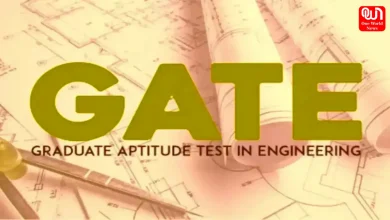The 7 Most Tough Courses After 12th In India
Most Tough Courses After 12th range from preparing for UPSC to JEE! Are you thinking of taking these up after school is over?
Are you thinking of opting for these Most Tough Courses After 12th?
Choosing a career path after completing Class 12 is a pivotal decision that sets the stage for one’s future endeavors. In India, where education is highly valued and competitive, certain courses stand out for their rigor and demand. From engineering to medicine, law to chartered accountancy, this article delves into the 7 most tough courses after 12th pursued by students across the country, providing insights into their requirements, career prospects, and the arduous journey that lies ahead.
- Engineering: Engineering remains one of the most sought-after and challenging fields of study in India. With rigorous coursework in mathematics, physics, and engineering principles, students pursuing disciplines such as mechanical, electrical, or computer engineering are faced with demanding academic standards and intense competition. The curriculum often includes practical projects, internships, and hands-on experience to prepare students for the complexities of the industry.
- Medicine: A career in medicine requires unwavering dedication, intellectual prowess, and a commitment to lifelong learning. Aspiring doctors undergo rigorous training that encompasses theoretical knowledge, practical skills, and clinical rotations. The demanding nature of medical education, coupled with the responsibility of caring for patients’ lives, makes it one of the most challenging and rewarding paths after Class 12.
- Chartered Accountancy (CA): The path to becoming a Chartered Accountant in India is marked by rigorous examinations, comprehensive training, and stringent eligibility criteria. CA aspirants must demonstrate proficiency in accounting principles, taxation laws, auditing standards, and financial management. The journey to obtaining a CA designation entails years of dedicated study, practical experience, and a series of challenging examinations conducted by the Institute of Chartered Accountants of India (ICAI).
- Law: Legal education in India is renowned for its academic rigor and competitive nature. Pursuing a career in law requires critical thinking, analytical skills, and a thorough understanding of legal principles and precedents. Law students engage in rigorous coursework, moot court competitions, internships, and legal research to hone their skills and prepare for the challenges of the legal profession.
- Architecture: Architecture is a multidisciplinary field that demands creativity, technical proficiency, and a deep understanding of design principles. Students pursuing a degree in architecture undergo rigorous training in architectural theory, building science, construction technology, and design studio projects. The curriculum emphasizes hands-on learning, site visits, and collaborative projects to prepare students for the complexities of architectural practice.
- Management (MBA): An MBA degree from a reputed business school is highly coveted in India’s competitive corporate landscape. MBA aspirants undergo rigorous coursework in areas such as finance, marketing, operations, and human resources management. The curriculum is designed to develop leadership skills, strategic thinking, and business acumen through case studies, group projects, and industry internships.
- Indian Administrative Service (IAS): The Indian Administrative Service (IAS) examination is considered one of the toughest competitive exams in India. Aspiring civil servants undergo extensive preparation encompassing a wide range of subjects, including Indian polity, economics, history, geography, and current affairs. The selection process includes multiple stages, including a preliminary exam, mains exam, and personal interview, testing candidates’ knowledge, analytical abilities, and communication skills.
Picking the most challenging courses after Class 12 in India requires determination, resilience, and a passion for excellence. Whether pursuing engineering, medicine, law, or any other field, students embarking on these paths are poised to embark on rewarding careers that contribute to society’s progress and development. By embracing the academic rigor, honing their skills, and staying committed to their goals, students can overcome the challenges and emerge as leaders in their chosen fields.
Like this post?
Register at One World News to never miss out on videos, celeb interviews, and best reads








